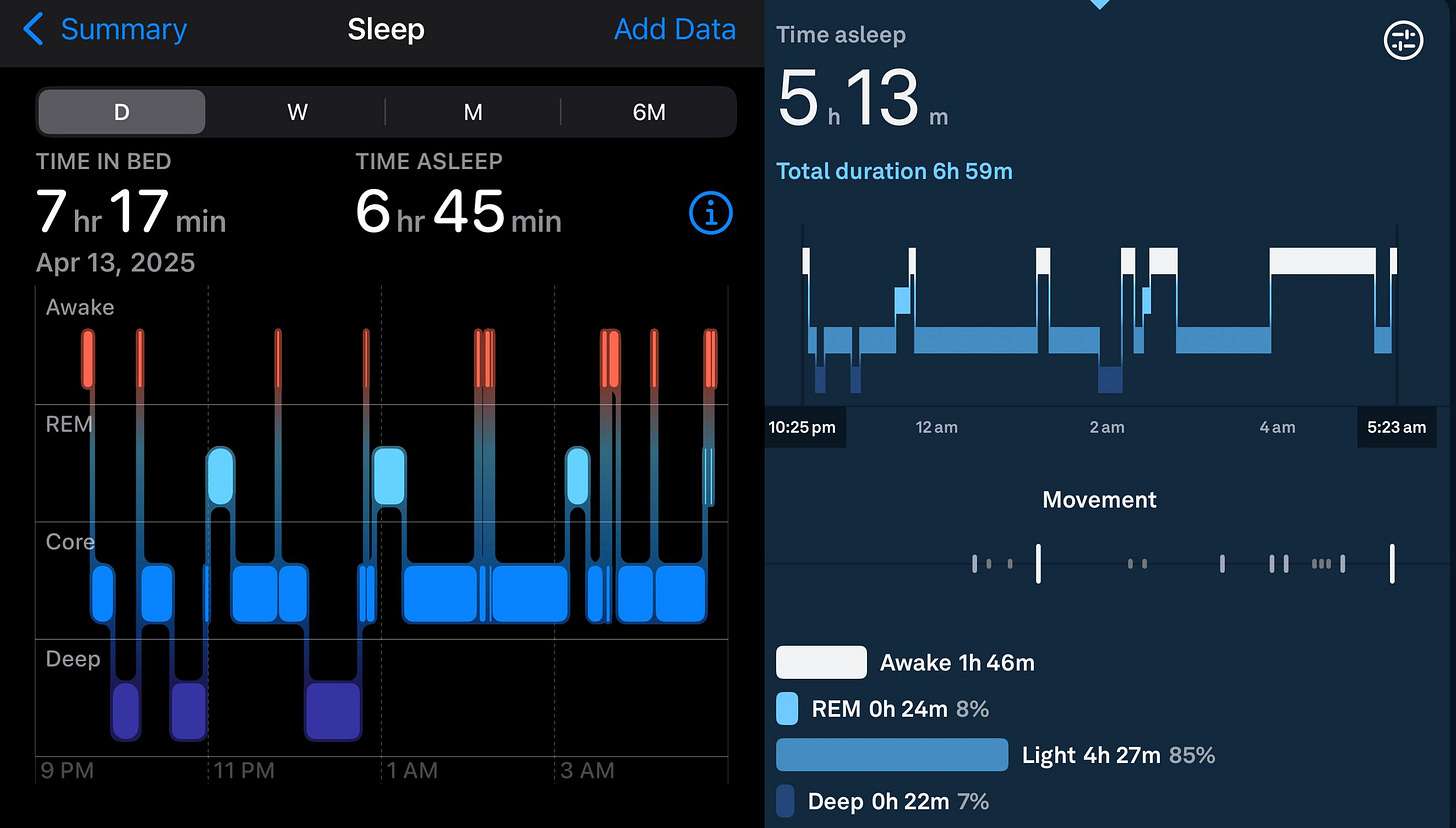To hear the related 5-minute audio file that I uploaded today as my Morning Journal flash briefing for Alexa devices, please click on the play button:
Zzzzzzzz
Last night I got 6 hours and 45 minutes of sleep—or did I?
Apple’s Health app, gathering data during the night from my Apple Watch, this morning reported nearly 7 hours of sleep. This made me feel rested as I started my day.
But when I checked the Ōura app on my iPhone, which gathers data from the Ōura Ring on my left forefinger, my chipper mood descended into grumpy fatigue. Ōura reported that I only slept 5 hours and 13 minutes.
I asked Ōura’s AI advisor to explain the discrepancy. He offered this:
The Ōura Ring primarily measures physiological signals like heart rate and body movements, while other devices may rely more heavily on movement detection alone. These differences can result in variations in how periods of wakefulness or sleep are detected.
If you find discrepancies between devices, consider which device you feel aligns more with your personal experience in terms of restfulness upon waking.
Listening to your body and how you feel upon waking is an invaluable part of understanding your sleep quality too.
My body seemed to agree with Ōura, though I wondered how much of my tired feeling was due to the power of suggestion.
What intrigues me more than the discrepancy is the way both devices are acting as translators for my body.
It reminds me of the mind-boggling presentation I heard at South By Southwest about how AI researchers are getting close to being able to translate animal languages into human language.
I’ve always known it was a good idea to listen to my body, in a general way. But what if technology in the coming years will enable me to communicate with more precision with my non-mind?
As I write this after supper, I feel tired and glum. My mind and body agree on one thing: Winding down for sleep at 9 p.m is the right next move for a healthy tomorrow.



